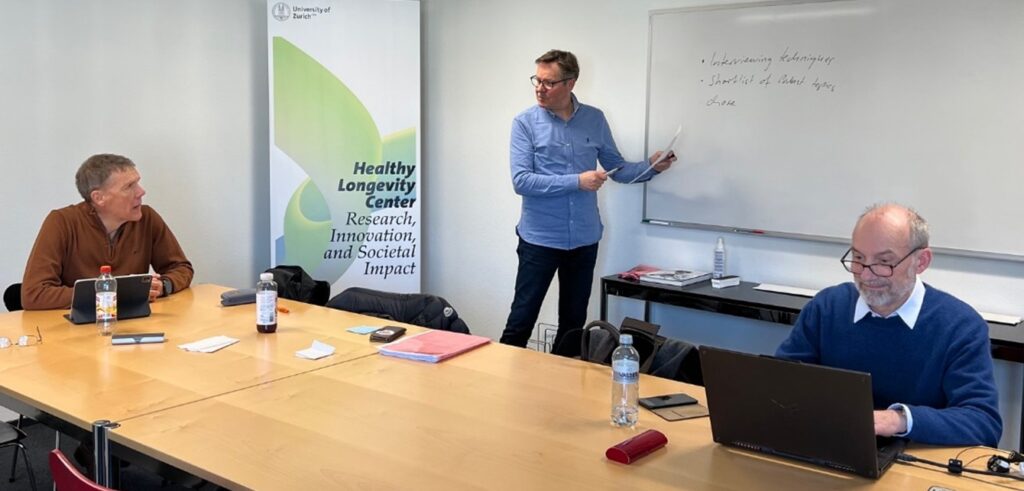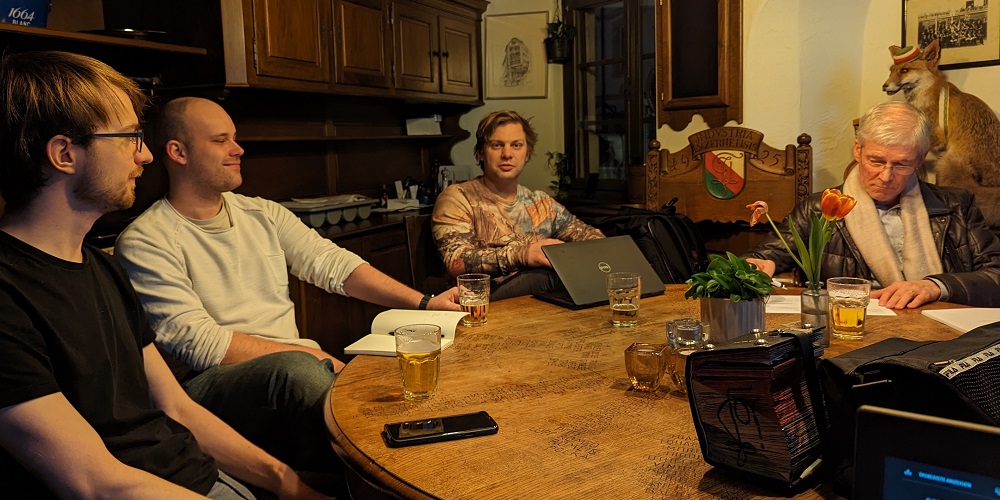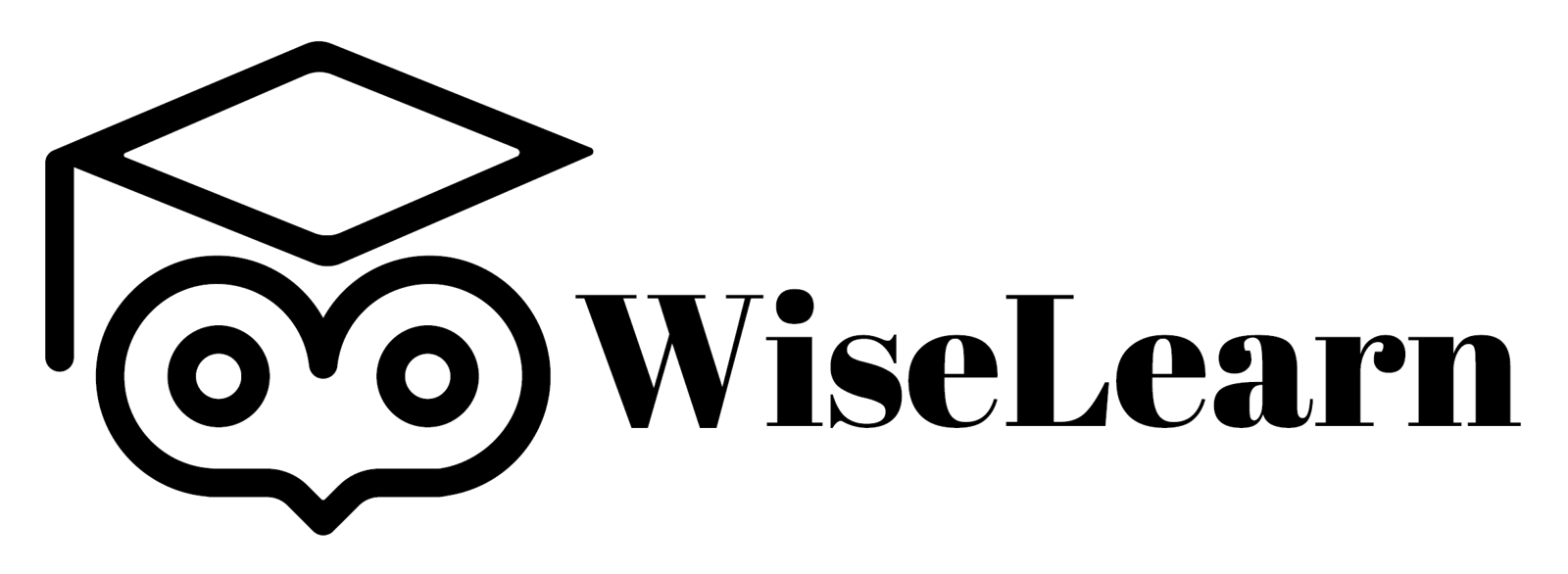Design Thinking course for adults 55+
In a pilot study conducted by the ZHAW and UZH, a group of 60+ learners completed a Design Thinking course (by Sparkademy). Design thinking is a way of thinking that promotes innovation by identifying the needs or challenges of a target group and then finding solutions to them. Over the course of three months, the participants were familiarised online with theories and methods, which they then applied to their own innovative projects in on-site learning groups. The feedback from the course was incorporated into the development of our blended learning course “The Key to Innovation and Entrepreneurship – a practice-oriented course for your project start”. Read here about the projects the participants initiated and drove forward with the help of design thinking methods.
WiseListening – The Podcast for Curious Senior Citizens
by Paul Kühne, Remo Pianezzi, Martin Färber
The idea was clear: We want to produce a podcast series for senior citizens. But how do we do it? That’s where the Design Thinking course came in handy. With the support of Design Thinking, we hope to create a podcast series that meets a broad need and can be produced in a sustainable and resource-efficient way. The structured approach helps us to recognise obstacles in the project at an early stage and develop solutions. The course familiarised us with a learning process that we will also be able to apply to other (also private) projects in the future.
The podcast production has started and you can start listening to it now.

Equal Opportunities Start With Early Support:
A Guide for Politicians in the Canton of Aargau
by Elisabeth Huwyler, Christoph Lögler, and Peter Wolf
We are committed, retired people who want to continue to be challenged on a voluntary basis and make meaningful use of our knowledge and experience. In the areas of volunteer work in which we are involved, the methods of design thinking allow us to approach a problem in a new and multi-layered way, which promotes surprising and innovative solutions.

In our project, we are focussing on the topic of early intervention for children. Early support includes holistic support (not school education) in motor skills, language, and social behaviour for children between the ages of 2 and 4. If support is omitted at this tender age, it can make it difficult for children to integrate into kindergarten, school, and even society.
Our aim is to sensitise politicians in municipalities and the canton of Aargau to the topic and to work towards a holistic, cantonal implementation. Thanks to the course, we adopted different perspectives and were guided to conduct deeper and broader research and develop creative ideas. The result is a 10-step guide to implementing early intervention for local councillors.
Student City Lucerne
by Max-Peter Felchlin and Hans-Urs Hengartner
Background: Hans-Urs Hengartner v/o Merlot is alumnus and Max-Peter Felchlin v/o Hähä is alumni president of the academic student fraternity Gundoldinger. The AV Gundoldinger has not had an active fraternity (students) for many years. Student fraternities in Lucerne have a poor image, are not recognized and are not supported by the universities.

Our vision: The city of Lucerne should become nationally and internationally known as a student city (similar to Heidelberg, for example). Lucerne should be desirable for students. To this end, all important offices and organizations should be involved. The ultimate goal is for student associations to be recognized, accepted and active again.
In the Design Thinking course, we got to know a very comprehensive set of methods that could be used 1:1. For example, we conducted an interview with some students in the canteen at the University of Lucerne. Together with three students, we used various analysis and evaluation tools. The results showed initial insights that now need to be expanded and deepened.

